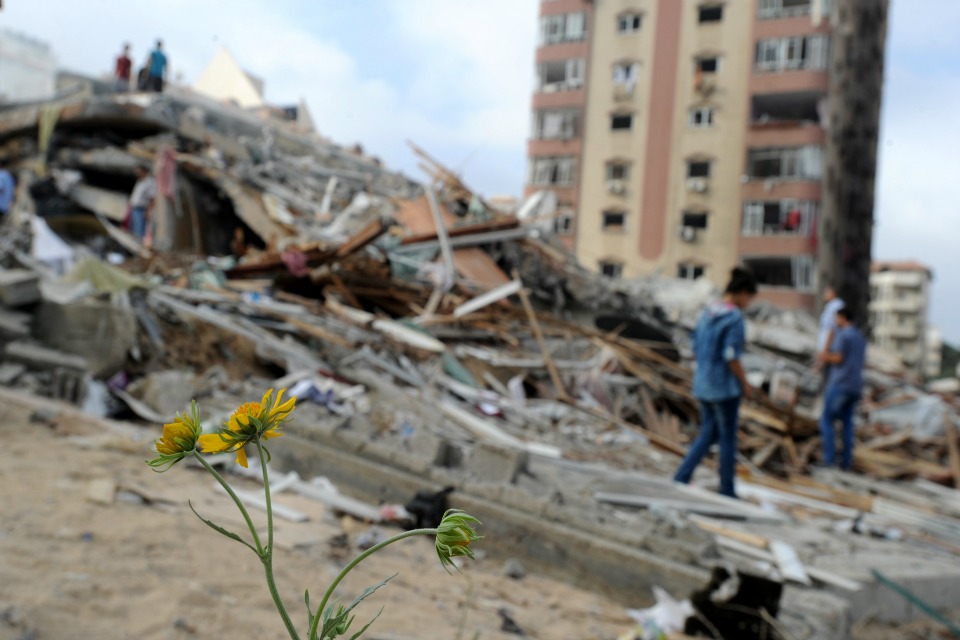"The regional turmoil we are witnessing only reinforces the importance of resolving the Israel-Palestine conflict."
Statement by Ambassador Mark Lyall Grant of the UK Mission to the UN at the Security Council Debate on the situation in the Middle East, including the Palestinian Question

Thank you Mr President. I would like to thank you for convening this open debate and I thank the Secretary-General for his earlier briefing.
Mr President, Last month marked the start of the fifth year of the Syrian conflict. For the past four years, Assad has repressed, maimed and killed his own people. He has ruined the country he should protect; Syria is now a shell of its former self. And still the situation gets worse. We are deeply concerned by the fate of the Palestinian refugees in Yarmouk, where intense fighting is continuing between armed groups, including ISIL and Jabhat al-Nusrah. Thousands of civilians, many children included, have been living under siege from the Assad regime for nearly two years and are trapped with little access to humanitarian assistance. The plight of the people in Yarmouk is the tragic reality for more than 440,000 Syrians currently under-siege by Assad and ISIL, without access to humanitarian assistance. This includes nearly 230,000 people besieged in Deir ez-Zor by ISIL. They face severe shortages of food and basic goods. Power and water supplies have been cut and public health concerns are growing. We call on all groups to protect civilians, ensure humanitarian access, and allow the safe passage and evacuation of civilians.
Mr President, The need for a political settlement in Syria has never been more pressing. The regime’s recent loss of Idlib shows that neither side can win on the battlefield. There is no military solution. The only way to bring about a sustainable peace remains a political transition by mutual agreement of the Syrian parties, supported by the international community. The UN Special Representative, Staffan de Mistura continues to have the United Kingdom’s strong support in his efforts to achieve this, and we look forward to his briefing later this week. We remain clear that Assad can play no part in Syria’s future. We must also be unwavering in our humanitarian commitment to Syria. We thank Kuwait for their leadership in hosting the third pledging conference for humanitarian aid. The $3.6 billion pledged goes a long way to meeting the UN financing needs for 2015. The United Kingdom itself has now committed more than $1.2 billion to the Syrian crisis. But more needs to be done. We urge all states to disburse their pledges promptly. And we encourage the UN’s humanitarian agencies and their partners to scale up humanitarian deliveries to besieged areas, including through cross-border routes.
Mr President, Let me turn to the Middle East Peace Process. We all know that the only way to resolve this sixty year old conflict is through a negotiated two state solution. We must have renewed international efforts to support progress and to start serious negotiations towards a deal. The parties themselves must also resume negotiations to reach a durable ceasefire in Gaza and tackle the underlying causes of the conflict. The Palestinians need to take concrete steps towards moving the Palestinian Authority back to Gaza, starting with border crossings. Israel must support Gaza with exports, energy and water. Egypt needs to resume its mediation role and show flexibility in opening Rafah. And donors need to deliver on their pledges as soon as possible. The regional turmoil we are witnessing only reinforces the importance of resolving the Israel Palestine conflict. Both parties must think seriously about how they can work together to improve the reality on the ground. It is clear that compromises by both parties are needed. Israel must stop its illegal, and totally unnecessary, settlement building, which seems designed to undermine a two state solution. Instead they should be easing economic conditions on the ground and removing barriers to Palestinian development. Furthermore, while the Palestinians seek legal international routes to statehood, they must realise that there can be no substitute for negotiations with Israel. The United Kingdom sees merit in this Council adopting a clear resolution setting out the parameters for a peaceful and negotiated solution. But this will require proper consultation to achieve the full backing of the Council.
Mr President, As this is my final Middle East open debate, I would like to thank Council Members both past and present for their efforts on these issues over the last five years. But it is of deep regret that greater progress on Syria and the Middle East Peace Process has not been possible during this time. Much greater unity of purpose and more willingness from Members to set aside their narrowly defined interests will be needed if we are to overcome these intractable issues in the future.
I thank you.